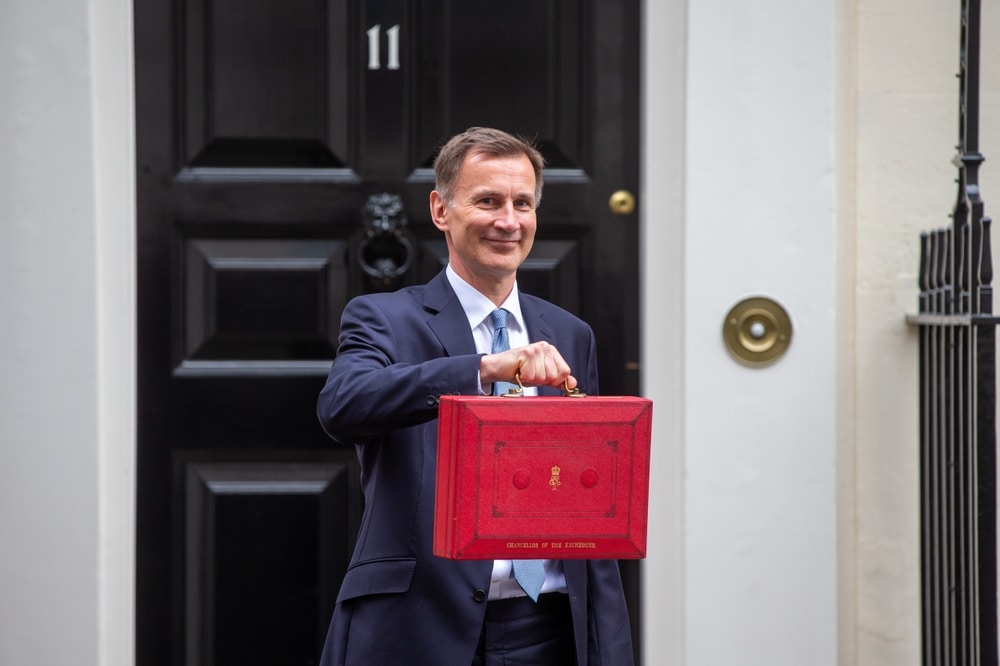The Spring Budget is an annual fiscal event in which the Chancellor outlines planned tax, spending, and borrowing changes. Chancellor Jeremy Hunt delivered his Budget speech on 6th March 2024 against high inflation and a cost-of-living crisis.
The speech contained several announcements affecting the property sector, although hopes for more radical reforms to help first-time buyers were left unfulfilled. The blog below analyses the important legislation for housing in the 2024 Spring Budget and its potential impacts.
What is the Spring Budget?
The Spring Budget is one of the two major set-piece fiscal events in the UK parliamentary calendar. Traditionally held in March, the Chancellor can update economic forecasts and announce new policy measures for the coming financial year.
These proposals are outlined in a speech in the House of Commons, followed by several days of debate before the various Budget resolutions are voted on.
The March 2024 Budget was Jeremy Hunt’s second since becoming Chancellor of the Exchequer in October 2022. It comes at a crucial time for the UK housing market, which is grappling with rising inflation, a cost-of-living crisis, and mounting pressure on household finances.
Key Points from the Spring Budget
The Spring Budget 2024 speech contained a range of announcements and updates related to the housing market. While measures like the stamp duty threshold freeze provide some short-term certainty, they may have different implications for various stakeholders.
For instance, the abolition of Stamp Duty Relief for Bulk Purchases could deter landlords from expanding their portfolios and supplying much-needed rental homes. Overall, buy-to-let investors were disappointed by the budget’s lack of positive measures.
1. Abolition of Stamp Duty Relief for Bulk Purchases
A headline measure announced was abolishing stamp duty relief for those buying multiple properties in a single transaction. The Multiple Dwellings Relief was brought in to boost investment in the private rented sector. But the Chancellor said evidence showed it was being widely abused, hence the decision to scrap it from April 2025.
Similarly, despite speculation, no new stamp duty cuts explicitly targeted at first-time buyers were announced in the budget speech. The lack of such measures could be attributed to the government’s focus on other areas of the housing market.
Industry figures warned that this could deter landlords from expanding their portfolios and supplying much-needed rental homes. Overall, buy-to-let investors were disappointed by a lack of positive measures in the Budget.
2. No Permanent Increase to Stamp Duty Thresholds
It was also confirmed that the temporary increases in stamp duty thresholds for home movers and first-time buyers will not be made permanent.
From April 2025, thresholds will revert to pre-September 2022 levels of £125,000 for standard residential properties and £300,000 for first-time buyers.
This decision means more home movers will face higher stamp duty bills in 2025, which could dampen housing market activity.
3. Capital Gains Tax Reduction for Property Sales
In a surprise move, Jeremy Hunt announced that the higher rate of capital gains tax charged on profits from property sales will be cut from 28% to 24%.
This aims to encourage more second homeowners and buy-to-let landlords to sell their house(s) and release stock onto the market. However, critics argue that the modest tax reduction will likely sway professional landlords.
4. No Stamp Duty Cuts for First-Time Buyers
Despite speculation, no new stamp duty cuts explicitly targeted at first-time buyers were announced. Many had called for the £425,000 threshold for first-timers to be made permanent to support those struggling with high deposits and affordability constraints, but no such measures made it into the Budget speech.
5. No 99% Mortgage Scheme
There had been speculation that the government was considering backing a new 99% mortgage scheme to help first-time buyers with low deposits onto the property ladder.
The proposed initiative would have allowed buyers to purchase a home with a deposit of just 1%, with the rest borrowed. However, the Chancellor did not mention such a scheme in the Budget speech. The lack of detail suggests the rumoured 99% mortgage proposal is far from being finalised or launched.
Overall, the announced housing measures offer limited direct support for those struggling to climb the ladder or trade up the market.
While the risks of a price crash have eased somewhat, the market still faces challenges around mortgage access and helping first-time buyers. It’s important to consider these factors when making long-term decisions in the housing market.
There were hopes that this Budget could provide real impetus for reform and revival in the property sector. However, the speech suggests a holding pattern of incremental changes rather than any significant new travel directions.
How Does the Spring Budget 2024 Affect the Housing Market?
The Budget’s impact on the property market is expected to be relatively balanced. While the phasing out of stamp duty relief may raise concerns for some landlords, it was a possibility that buy-to-let investors were prepared for. The temporary stamp duty thresholds remaining for buyers provide a degree of short-term stability. However, the reversion to lower thresholds from 2025 could potentially dampen activity.
The temporary stamp duty thresholds remaining for buyers provide some short-term certainty. However, reverting to lower thresholds from 2025 could dampen activity.
For first-time buyers, the lack of targeted stamp duty support when raising a deposit remains a significant challenge, which the Budget did not address in a substantive manner. This could lead to frustration and disappointment.
Broadly, the market looks set to continue stabilising following the upheaval of 2022-23. But, a shortage of affordable low-deposit mortgages and homes remains an obstacle for many, which the Budget did not substantively address.
Will Interest Rates Come Down Soon?
Interest rates have fallen from their mid-2023 peak but remain elevated compared to recent years. Given conflicting economic signals, an ongoing debate exists about how quickly borrowing costs may decline further.
Mortgage rates tracked higher for much of 2022 and early 2023 following a series of Bank of England base rate hikes to combat surging inflation. However, mortgage rates have also declined as consumer price inflation moderated from over 10% to around 4%.
The average two-year fixed mortgage deal hit 6.86% in July 2022 but has since eased to around 5.75% as of March 2024. However, rates remain well above December 2021 levels of 2.34%.
While inflation has dropped rapidly, at 4%, it remains double the Bank of England’s 2% target. This had led forecasters to push back expectations of when base rate cuts may begin. Markets are now pricing in rates remaining at 5.25% for most of 2024.
Some analysts argue that a weak growth outlook may force the Bank’s hand to cut rates before year-end to support the economy. However, stubborn core inflation could lead to hikes being restarted if price pressures fail to dissipate entirely.
Interest Rates in 2024
The path of interest rates in 2024 and beyond remains highly uncertain. While the consensus is that the ultra-low rates of recent years are over, borrowers must be prepared to adjust to a higher-rate environment for the foreseeable future.
Mortgage lenders have responded by regularly adjusting fixed-rate deals based on shifting base rate expectations. Further volatility in fixed rates seems likely as the economic picture evolves.
Mortgage lenders have responded by regularly adjusting fixed-rate deals based on shifting base rate expectations. Further volatility in fixed rates seems likely as the economic picture evolves.
While cheaper fixed-rate deals have reappeared, the Bank’s guidance suggests gradualism in either direction. Borrowers may need to be patient for more material declines in mortgage rates as the inflation fight continues.
Is the UK Housing Market Going to Crash?
Fears of a housing market crash grew in 2022-23 amid a deteriorating economy and rapidly rising mortgage rates. But prices have remained resilient so far.
However, various risks remain, including higher unemployment and more forced sales if landlords exit the market. While gradually cooling house prices over 2024-25 looks more likely than a crash, uncertainty persists.
While unlikely, a housing market crash cannot be ruled out if the economy takes a turn for the worse. Some economists have warned that a severe recession could spiral the market downward. Rising unemployment and more stretched household budgets could trigger forced sales and cause prices to unravel.
There are also risks around mortgage availability if lenders pull back on higher LTV lending. While the odds may seem against a 2008-style crash, some potential trigger points persist. House prices remain historically elevated and could prove vulnerable in a worst-case economic scenario. It is essential to stay up-to-date with developments in the UK housing market so you can make the best choices for your present and future.


















